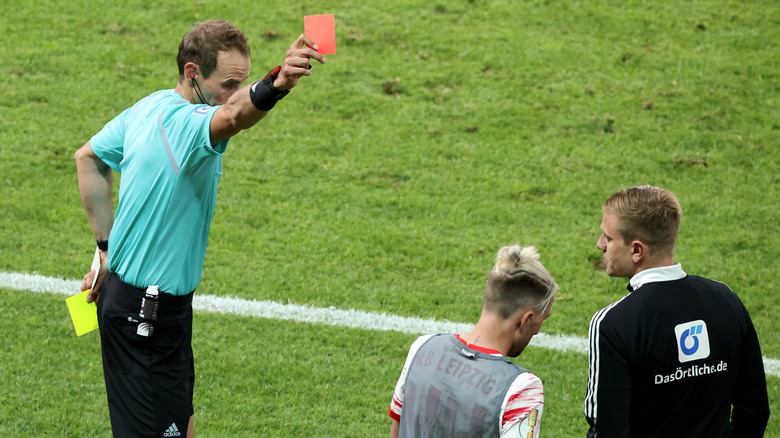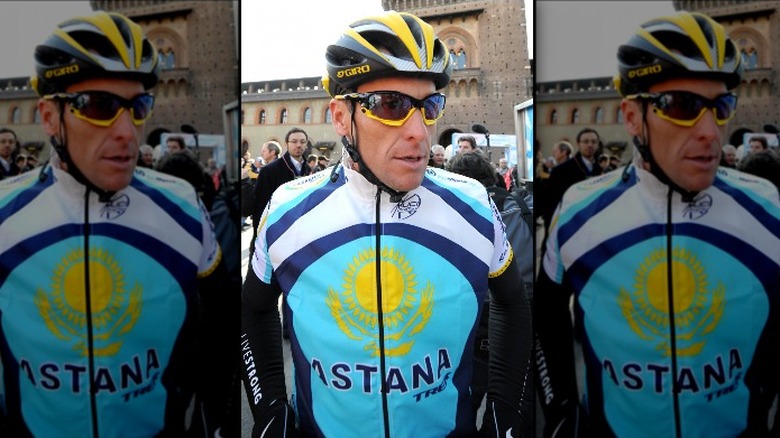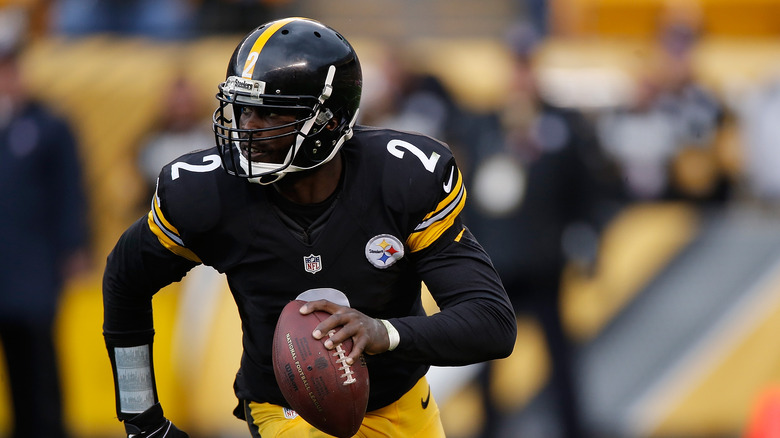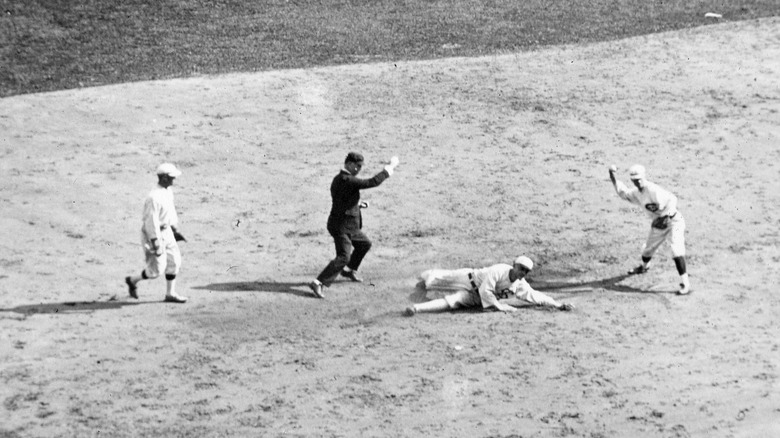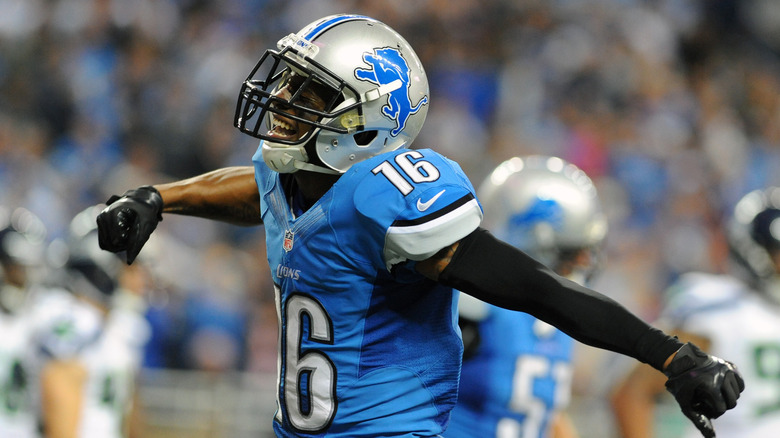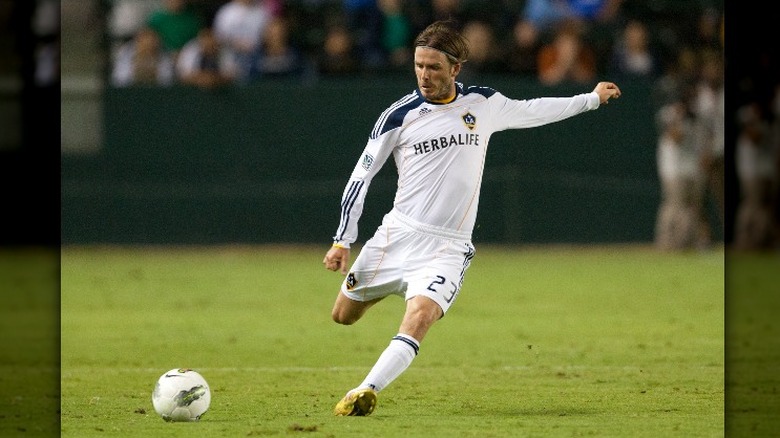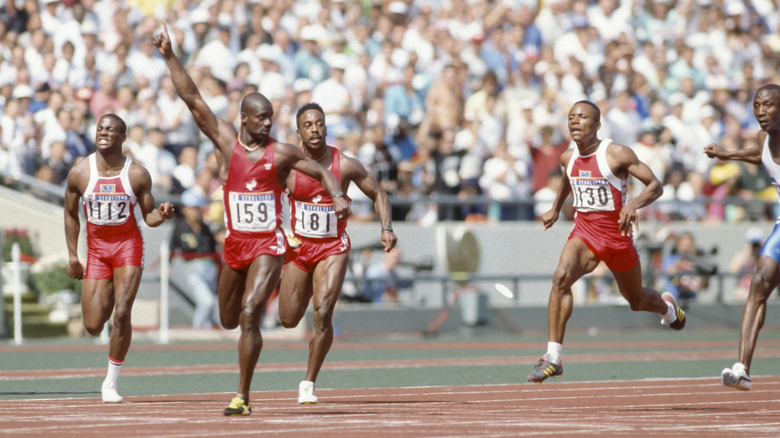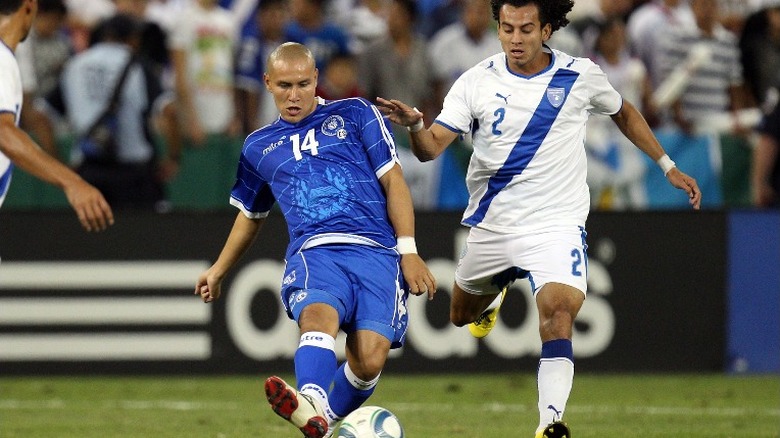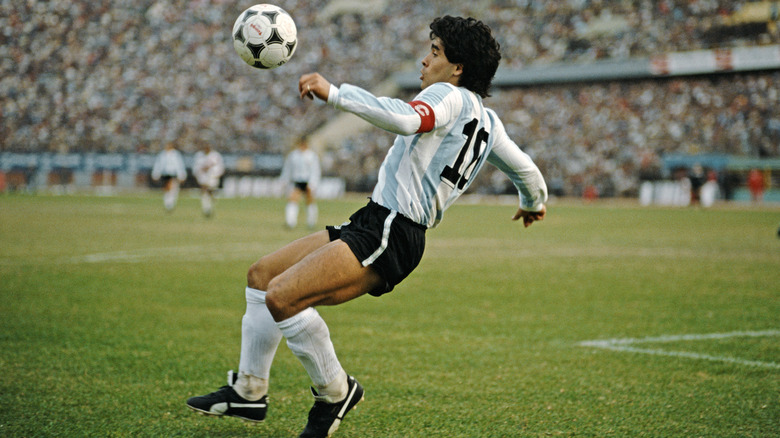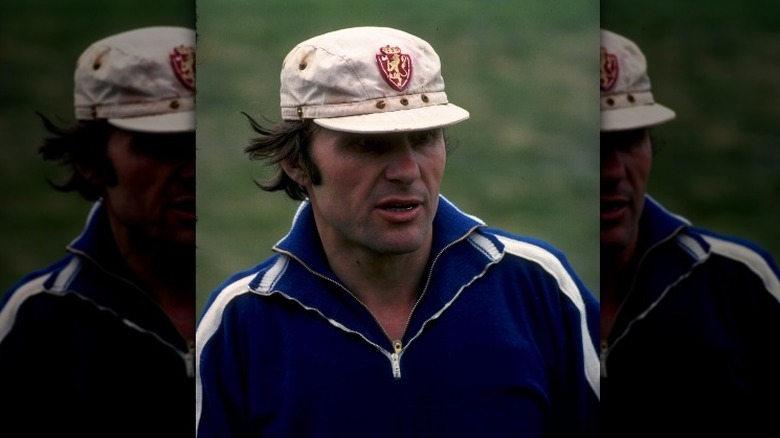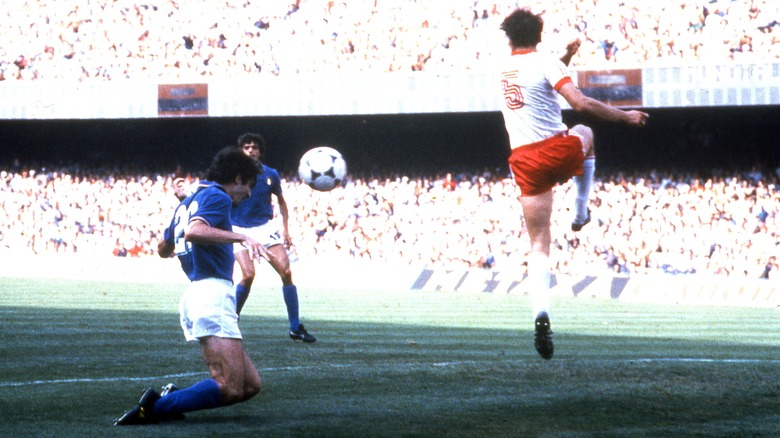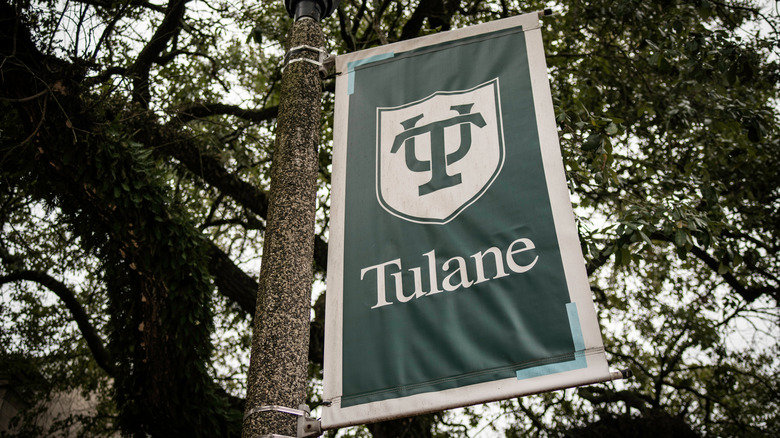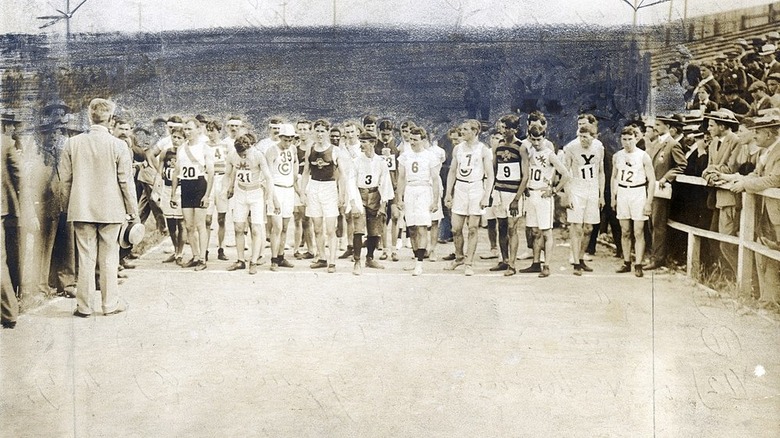Athletes Who Got Greedy, Then Got Kicked Off The Team
Correction 08/03/22: A previous version of this article stated that Diego Maradona failed a drug test due to epinephrine. He failed the test due to ephedrine, not epinephrine.
Professional athletes are often characters. Blame too much money too soon, the fame, status, or attention lavished upon them, but there is no denying that many of them tend to get greedy – despite often making megamillions. Sometimes, the greed is not financial but manifests itself in the desire to win at all costs, have just one more mistress, attend just one more exclusive party, or try a drug that can culminate in a tragic addiction. And of course, all of this can cause an athlete's career to end or at least hit a bump.
Greedy athletes come in every single sport and manifest in different ways. Endurance athletes at the Olympics, for instance, are driven to win the gold. Often they are willing to dope and even occasionally sabotage opponents. Big-money sports including football, baseball, and soccer, have had their share of financial, sex, and drug scandals that have gotten athletes kicked off their teams and in some cases destroyed careers. Here are some athletes whose greed got them kicked off the team.
Antonio Cassano
According to his own autobiography (via the Mirror), Italian soccer player Antonio Cassano avoided a life in the gutter. Raised by a single mother in the poverty-stricken city of Bari, Cassano's soccer career saved him from a life of crime. But his desire for authority, sex, and sugar cost him kicked off two top European teams.
At AS Roma, Cassano's clashes with staff overshadowed his brilliance. He actively fought with coach Fabio Capello and called him "more fake than monopoly money." Inexplicably, later coach Bruno Conti made Cassano team captain. Cassano let the title go to his head. Believing himself the big boss, he told Conti's successor Luciano Spalletti, "[AS Roma] isn't your house, it's my house," and he also added that the Roma players answered to him.
By 2006, Cassano was a liability, so Roma sold him to Real Madrid, where he was reunited with his old enemy Fabio Capello. At Real, Cassano became overweight and out of shape. According to El Futbolero, Nutella – a Real sponsor – gifted him 5 kg of Nutella every month, which he consumed with gusto. Per his own autobiography, (via Bleacher Report), his sweet tooth and an insatiable sexual appetite led to weight gain, neglect of his job as a player, and a sex addiction. Combine this with regular clashes with Capello over his playing time, and it is unsurprising that Real, per its then-president Ramon Calderon, saw him as a liability and unloaded him off to Sampdoria. Fortunately, Cassano corrected course and is, per Il Corriere dello Sport, happily married to Italian water polo athlete Carolina Marcialis.
Lance Armstrong
Lance Armstrong was an inspiration to many Americans. His seven Tour de France wins were all the more impressive given that he achieved them (per ESPN) after recovering from testicular cancer. But it turned out to be a con. Armstrong's desire for titles and glory had led him to cheat his way to his victories through blood doping.
Armstrong's conduct was quite damning once it came to light in 2011. Per the Bleacher Report, he bribed officials to cover up positive doping tests, encouraged teammates to cheat, and threatened whistleblowers with lawsuits – all while presenting himself as a paragon of perseverance. Per Newsweek, his fame also allowed him to amass a $125 million fortune. Given this, it seems that Armstrong's cheating was not motivated by a commitment to sport, but by a win-at-all-costs mentality in pursuit of fame and the money that he later brought in through sponsors and his image.
Armstrong's behavior, despite being hidden for over a decade, eventually came back to bite him. After fellow disgraced cyclist Floyd Landis turned against him and exposed the doping program, Armstrong, per Business Insider, was banned for life and stripped of all seven Tour de France titles. Every single one of his sponsors dropped him (the equivalent of getting "kicked off the team" for solo athletes). It was an incredible fall from grace for a man that had seemingly triumphed cleanly in the face of so much adversity.
Michael Vick
Considered one of the NFL's best players, Michael Vick had it all. From Virginia housing projects to Virginia Tech and the Atlanta Falcons (via interview with CBN), Vick had certainly made it. However, it seems that his desire for money and perhaps a twisted relationship with power got in the way of him realizing his full potential when he was ensnared in a dogfighting scandal in 2007.
Per ESPN, Vick's involvement in the scandal went beyond just dogfighting. He actively took part in killing the dogs when they were too injured to continue. Although he told CBN that he had little interest in money (he was already earning megamillions), ESPN also reported that he placed five-figure bets on the dogfights. On CBN, however, Vick claimed that his involvement in the ring was simply out of desire to one up his fellow dogfighters. As an athlete, he liked competing and winning. This extended to dogfighting too, leading him to inhumane treatment of the animals all for some fame and some extra money.
Vick served one-and-a-half years in federal prison for his troubles, while the Atlanta Falcons cut ties with him. While in prison, per Sportscasting, he helped his fellow inmates profit from bets using his insider knowledge of the NFL. Once he got out, his career got back on track when the Philadelphia Eagles gave him a second chance.
Tonya Harding
Per the Daily Beast, American figure skater Tonya Harding worked her way to fame from a broken home that constantly flirted with insolvency. As the big leagues and a possible spot at the 1994 Winter Olympics beckoned, she let her ambition and desire for fame and fortune get the better of her.
According to the Bleacher Report, Harding and fellow skater Nancy Kerrigan were both favorites to represent the United States in the 1994 Winter Olympics in Norway. Kerrigan already had a bronze from the '92 Winter Olympics and was undoubtedly the favorite to medal for the United States in Norway. Harding was the national champion and naturally wanted to go one better by winning Olympic gold and the fame and fortune such a triumph would inevitably bring. So Harding and her first husband hired one Shane Stant for $6,500 to sabotage Kerrigan.
Stant ambushed Kerrigan and whacked her in the knee with a heavy rod, bruising her and throwing her Olympic participation into serious doubt. Despite the problems, she refused to cast blame and ended up winning silver at the '94 games. Harding did not medal at all, and to make things worse, it soon became clear that she was an accomplice in the crime and was charged with obstruction of justice. She avoided prison, unlike her co-conspirators, but the scandal ended her career. She was banned for life and stripped of her 1994 U.S. skating champion title, per the Washington Post. After attempting a boxing career, she eventually married and currently lives with her second husband and son.
The Black Sox Scandal players (1919 World Series)
The 1919 Chicago White Sox are notorious in American MLB history for throwing the World Series that year to Cincinnati – especially given the team's star-studded roster that should have won. According to History, it started as most sports scandals do – with organized crime and betting. The agreement was simple. In order to cash in on bets on the Cincinnati Reds, the Sox were to lose five of nine series games. The corrupted players would receive $20,000 per loss to be paid in installments after each series game.
The first two games went according to plan. But here, the scam unraveled. The Sox had lost four of the first five games, but had not been delivered the promised cash. In the next two games, the Sox called off the fix and won to bring the series to 4-3. The Sox lost game eight 10-5, handing the championship to Cincinnati. It is suspected that the final game was fixed after organized crime threatened the players back into the agreement.
According to the Society for American Baseball Research, the suspicion was confirmed when Sox pitcher Bill Burns turned state's evidence and testified against his teammates. Despite the star witness' insider status, a working-class Chicago jury acquitted the players – many of whom came from similar backgrounds – of all charges. In the end, the MLB responded by banning the eight guilty players from all baseball activities for life. The 1919 Chicago White Sox today is known as the "Black Sox" for the corruption that darkened the reputation of America's favorite pastime.
Titus Young
Controversial but talented Detroit Lions wide receiver Titus Young could have made it in the NFL. But as the Bleacher Report notes, Detroit had a limit with the kind of bad behavior it was willing to put up with. Young got himself into trouble for punching his teammates. But his selfishness was the proverbial straw that broke the camel's back.
According to the NFL, Young was quite a selfish athlete. When he disagreed with his coaches or things did not go his way, he would take out his frustration on the team. In a game against the Green Bay Packers, he aired his disagreements with the staff by lining up in the wrong position. Later, he was disciplined for "insubordination," presumably for not listening to the coaching staff. His tweets suggest that his main hang-up was not getting enough of the ball.
Young had forgotten that there is no "I" in "team." After his insubordination during the Packers game, Young took to Twitter complaining that if his teammates weren't going to give him the ball, he wasn't going to play. He had already followed through with that threat against Green Bay, so Detroit took him seriously. Realizing that Young's on-field greed was becoming a liability, the Lions released him from his contract. As noted in the Bleacher Report, he did poorly away from football, landing himself in legal problems and an eventual stint in prison for assault and battery, even throwing away a second chance from the St. Louis Rams to get his career back on track.
David Beckham
English soccer star David Beckham made fame not just by his career, but also by his celebrity image cultivated in part by his marriage to Victoria "Posh Spice" Beckham. In fact, this marriage, which catapulted Beckham into the celebrity world, per the Guardian, derailed his career at Manchester United. Upon his transfer to Real Madrid, it seems that these issues continued.
After several years at Real and arguments, it seemed, per the Herald Tribune, that Spain's capital club wanted to kick Beckham to the curb. So Beckham inked a megamillions deal with MLS team LA Galaxy, per Gulf News, before Real could officially kick him off. The Washington Post reported that Beckham saw the promotion of soccer in the United States as a challenge to surmount. Money had nothing to do with it. But Real president Ramon Calderon, in a graduation speech at Madrid's Villanueva University (via New York Times), claimed that Beckham had left Madrid for Hollywood celebrity status and easy money.
The Real staff were unhappy once Beckham began to perform again and tried invoking an escape clause which Galaxy claimed did not exist. It was all for naught, as Beckham, following a series of good performances in his final games, decided to try his luck in the MLS. The Galaxy fans certainly believed that the move had been nothing more than attention-grabbing, as they referred to Beckham as a fraud (via Reuters) with no dedication to the team, especially after he missed part of the MLS season to play on loan in Europe.
Ben Johnson
According to the IOC, Canadian sprinter Ben Johnson was the hero of the 1988 games in Seoul when he notched a then-world record of 9.79 in the 100m dash. As CNN reported, Johnson's victory and world record were unexpected. A day later, it became clear why. He tested positive for banned steroids and was immediately stripped of his gold medal. It turned out that it was not a one-off case either. His trainer Charlie Francis admitted to an IOC commission that Johnson had been doping since 1981, just as his career was getting started. He had gotten away with it because IOC doping controls were still in their infancy.
Per the CBC, Johnson lost everything. Diadora pulled their multimillion dollar sponsorship, and the IOC banned him for life from athletics, a decision he decried as unfair. His coach, although admitting to abetting doping, agreed that Johnson had been set up. He had never taken the particular steroid he tested positive for, suggesting that the ban was a cover-up to protect other offenders that escaped punishment. Regardless, the decision stood and Johnson eventually settled into a job as a youth soccer coach and Serie A advisor in Italy.
Johnson's motivation was likely fame and fortune (aka greed from a win-at-all-costs mentality). According to Australia's SBS News, Johnson would by no means be the last, as doping has become endemic in endurance sports driven by greed and desire for success with less effort.
El Salvador
El Salvador has never been a particularly strong side, always playing in the shadow of the CONCACAF giants of Mexico and the United States. It has only qualified for the World Cup twice in 1970 and 1982, in the latter case suffering a 10-1 rout against Hungary. Lately, the team has raised its profile, but it could not escape a damning match-fixing scandal that saw over half the squad banned from playing.
According to Insight Crime, a group of Salvadorian internationals had conspired to fix matches on behalf of Singaporean organized crime that was benefitting from rigged bets in return for cash payments. It was first revealed that the Salvadorian team had been playing unofficial friendlies against teams that they were supposed to lose. Soon, the scope of the scandal expanded to reveal that World Cup qualifiers for Brazil 2014 were likely fixed too. Per the BBC, among the fixed games was a 5-0 humiliation against CONCACAF hegemon Mexico, a 2010 friendly against DC United, and a 4-2 friendly loss to Paraguay.
The state responded with raids, arrests, and hearings with the Salvadorian Football Federation. Per the BBC, 22 of El Salvador's internationals were implicated in the scandal. Only one was cleared of all wrongdoing. 14, however, were banned for life (including Denis Alas, pictured above left), a harsh sentence that no doubt crippled El Salvador's roster going forward. As harsh as the sentences were, the federation's hard line likely came as a warning to future offenders that selling the national colors for cash and letting down their adoring fans would not be tolerated.
Diego Maradona
Diego Armando Maradona is considered the greatest soccer player in history, even more than Brazilian Pele. In a single game, he scored the famous "hand of God" goal (by punching it into the net) and then dribbled past 7 English players (including the goalkeeper) to score the "goal of the century." But his love of nightlife ended a brilliant career on the lowest note possible.
According to the documentary "What killed Maradona" (via Daily Mail), the Argentine prodigy indulged in Spanish nightlife after signing for FC Barcelona in 1982. Soon, he began using (and abusing) cocaine, taking the habit to Italy's SSC Napoli in 1985. Per ArchySport, Maradona soon fell in with organized crime, attending exclusive mafia parties and mixing with Naples' underground elite. Naturally, this did not reflect well on Napoli, Maradona, or the Camorra, which preferred to keep its criminal operations in the dark – even though they were huge Napoli fans. Thus, Maradona became a liability – despite his enormous talent.
According to the New York Times, Maradona's lifestyle and resulting addiction culminated in a failed 1991 drug test that earned him a 15-month ban from the sport. The Italian Football Federation fined him $70,000, while Napoli sued him and then released him from his contract. Per the Bleacher Report, Maradona wandered around a handful of clubs in Spain and Argentina, but he never hit his old highs from his Napoli days. His international career ended at the 1994 World Cup in the United States, when he failed a drug test for the banned substance ephedrine (via AS). In 1997, he retired definitively (via Britannica).
Boris Onishchenko
Soviet pentathlete Borys Onishchenko had every reason to be proud. Per the IOC, he earned a silver medal at the 1972 Olympics in the individual pentathlon and was part of the Soviet pentathlon team that captured the gold. In 1976, the 38-year-old still lacked a gold in the individual pentathlon – and was willing to cheat to get it.
According to Sports Illustrated, a gold medal offered Onishchenko sporting glory, promotion within the Communist Party, and a raft of financial and housing benefits. The 1976 Olympics were his last, so he had to win. During the fencing stage of the pentathlon, Onishchenko faced British athletes. After two bouts, the British noticed a pattern: Onishchenko's epee was recording hits even in the absence of contact with his opponent. Initially, it was written off as a malfunction, but following British protests, officials found that Onishchenko was using an illegally-modified weapon.
The IOC disqualified Onishchenko. Two of his teammates, who had suspected his cheating on earlier occasions, testified against him, and he was banned and sent home. Subsequent events were the stuff of legend and anti-Soviet Cold War propaganda. Soviet premier Leonid Brezhnev allegedly locked him in a cabin, scolded him, fined him 5,000 rubles, and stripped him of his ranks in the Soviet military and Communist Party. SI contacted Onishchenko to get his side of the story, but he refused to talk. Per the book "Total Olympics," rumor has it that he ended up a taxi driver in Ukraine.
Tiger Woods
In 2010, golfer Tiger Woods had everything many Americans could only dream of. Per Forbes, he was worth $600 million, had a Swedish supermodel wife named Elin Nordegren, and was known as America's top golfer. Yet, this wasn't enough for him. According to Fox News, Woods engaged in a series of affairs, most famously with New York nightclub manager Rachel Uchitel. Per Uchitel herself, the affair was more than just sex. They would often discuss their lives, Wood's childhood, and numerous other life matters that suggested she really loved him (and vice versa). But since Woods was a married father, it was obviously still wrong.
Woods faced a major backlash once the affairs surfaced. First, Nordegren divorced him, taking $100 million in payments (about one-sixth of his 2010 net worth). Second, per the Bleacher Report, all his sponsors but two dropped him. Astonishingly, however, it cost him "only" $34 million, a drop in the bucket for him. As the Bleacher Report noted, however, his reputation was in tatters. Although a bump in the road, Woods' career recovered, despite nearly losing his leg in a car crash in 2021 (per ESPN).Thus, the price for his greed was not financial, but the loss of his family.
Paolo Rossi
Italian international and Perugia Paoli Rossi was implicated in a match-fixing scandal. Per Goal, players from capital club SS Lazio took cash in return for throwing matches on behalf of betters. Known as "Totonero," the scandal spread to other clubs, including Rossi's Perugia.
According to an interview with Storie di Calcio, Rossi denied any outright wrongdoing or financial motivations related to betting. However, he admitted that he had been involved in shady activities that caught the FIGC's (Italy's soccer federation) attention. Rossi had met with businessman and fixer Massimo Cruciani, who offered Rossi a portion of 8 million Italian lire if Rossi would help fix a match against Avellino. Rossi was to score twice in a 2-2 draw in agreement with Avellino's players. Rossi claimed that he and his Perugia teammates refused to take part. They wanted to win. Nevertheless, he scored twice in a 2-2 draw.
Coincidence or not, the FIGC had enough evidence to ban Rossi from all soccer-related activities for three years. Rossi's fans were stunned that he would have thrown away his career for two goals and 2 million Italian lire ($2,000 USD), while Rossi upheld his innocence. But this was not the end. After a reduction to two years on appeal, Rossi roared back at the 1982 World Cup in Spain, scoring thrice against Brazil in the quarter-finals on the road towards Italy's third World Cup title, where, per FIFA, he earned the Golden Boot and Golden Ball awards as the tournament's top scorer and best player.
The Tulane Green Wave
In 1985, the Christian Science Monitor reported that Tulane had taken the extraordinary step of completely shuttering its basketball program. So what had provoked this decision? Several top players had been implicated in a point-shaving scandal involving money, drugs, and frat bros. Per Crescent City Sports, Tulane student Gary Kranz, who provided forward Clyde Eads cocaine, recruited him for a point-shaving scheme so that Kranz and his frat brother David Rotheberg could cash in from bets placed on Tulane games. After collecting several thousand in cash, however, a particularly suspicious game against the Louisville Cardinals signaled to fans that something was amiss.
By the end of the season, despite point-shaving rumors, it seemed that the crooked players had gotten away with their scheme. But they didn't count on Tulane fan and lawyer Ned Kohnke's investigation. Kohnke discovered – contrary to his expectations – that the rumors had substance. The New Orleans DA became involved and arrested the guilty players. A subsequent investigation revealed the involvement of the coaching staff.
The story shocked the sporting world. Tulane player John "Hot Rod" Williams, who was fancied to reach the NBA after graduation, went on trial. According to the New York Times, a jury acquitted him, but his teammates lost their places on Tulane basketball as the program was shut down. Kranz, the head of the scheme, received three months in prison and $45,000 in fines.
Los Cachirules (Mexico youth team)
The Cachirules Scandal originated in Mexico in 1988 in relation to the country's participation in FIFA youth tournaments. Per Mexican sports outlet Medio Tiempo, Mexico qualified for the 1989 FIFA World Youth Championship in Saudi Arabia.
Mexican journalists researching the squad, however, realized that there was a problem. The tournament allowed players under the age of 20 to compete. Looking back on old Mexican Football Federation registries, it was discovered that at least four of Mexico's players were over-age. Per the book "Neighborly Adversaries," one player was a whopping seven years over-age. They had falsified their ages in cooperation with the Mexican soccer establishment to allow their participation in the youth tournament.
The aftermath is unclear. FIFA banned Mexico from all competitions until 1990. Thus, Mexico's senior squad missed the 1988 Seoul Olympics and the 1990 World Cup in Italy that year – even though its players, who were among Mexico's most talented, had done nothing wrong. It is unclear what exactly motivated them, but they do not appear to have suffered any punishment from Mexico or FIFA. Perhaps the embarrassment was enough. While age-cheating is generally not a problem in the CONCACAF region, per Bleacher Report, it is still rampant in Africa despite FIFA attempts to curb it.
Fred Lorz
The 1904 Olympic Games took place in St. Louis, Missouri, coinciding with the World's Fair. The games were strange – to put it lightly. Per Runner's World, the games were meant to highlight American supremacy alongside the country's achievements at the World's Fair. The marathon was perhaps among the most bizarre incidents of the games. Per Runner's World, it was held in 90-degree heat and was a bit of a eugenics experiment in itself. James Sullivan, the organizer of much of the games and World's Fair, wanted to test athletes ability to run a 24.85-mile course in the blazing summer heat with only a single water break. Let that sink in for a moment. But the athletes wanted the gold to make their training worth something, and so the race went ahead.
The race was a fiasco. Fred Lorz, one of the favorites, disappeared at mile 10. Cuban Felix Carvajal fell asleep in an orchard. WIlliam Garcia collapsed before mile 20 and nearly died.
Lorz still wanted to win, so he hitched a car ride and ran the final four miles to victory. But just as he was receiving his gold, a spectator revealed his cheating. Lorz dismissed the scheme as a joke, but received a life ban from the sport for his antics. Incredibly, Hicks won the race nearly 30 minutes later after drinking a mixture of eggs and strychnine sulfate (a rat poison) – twice.
